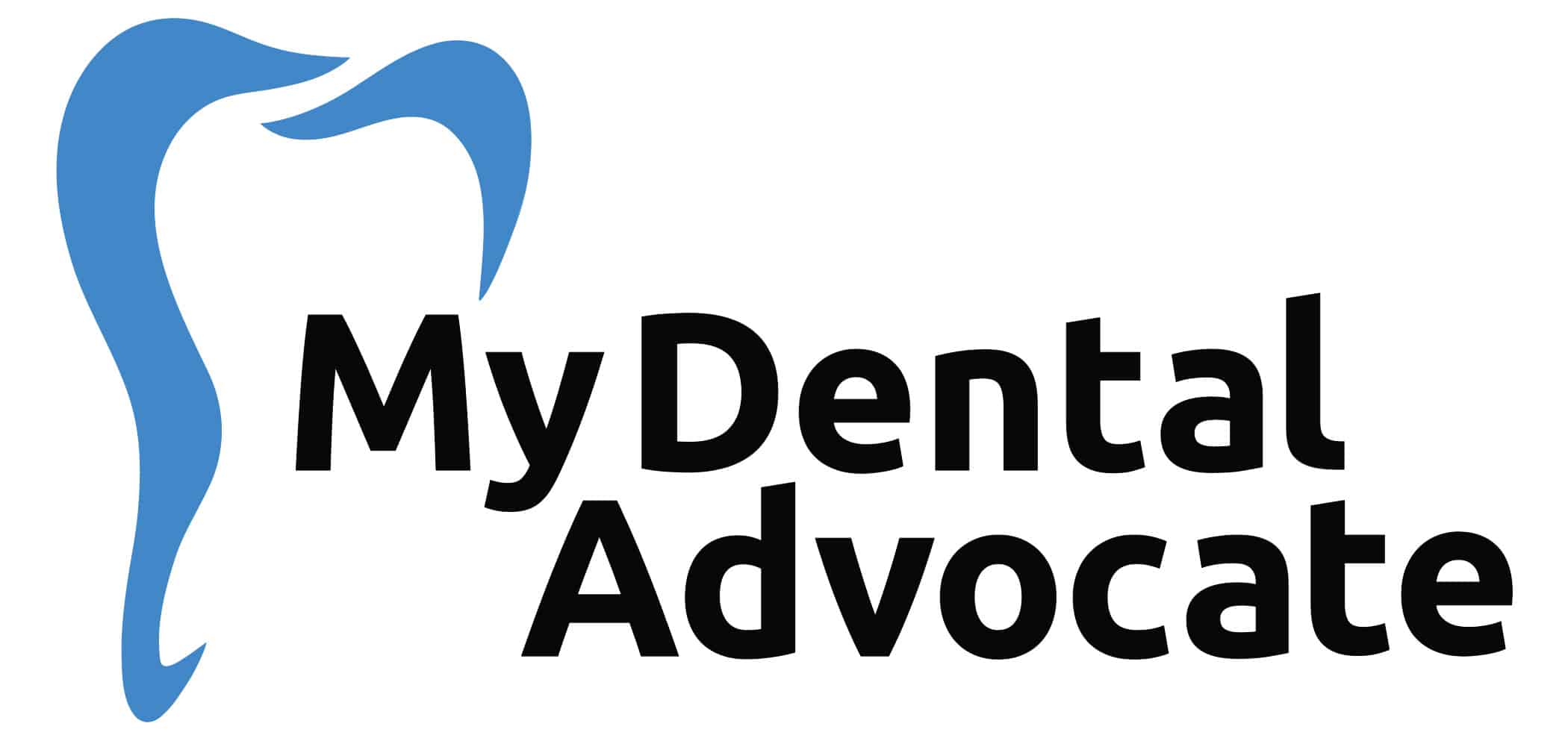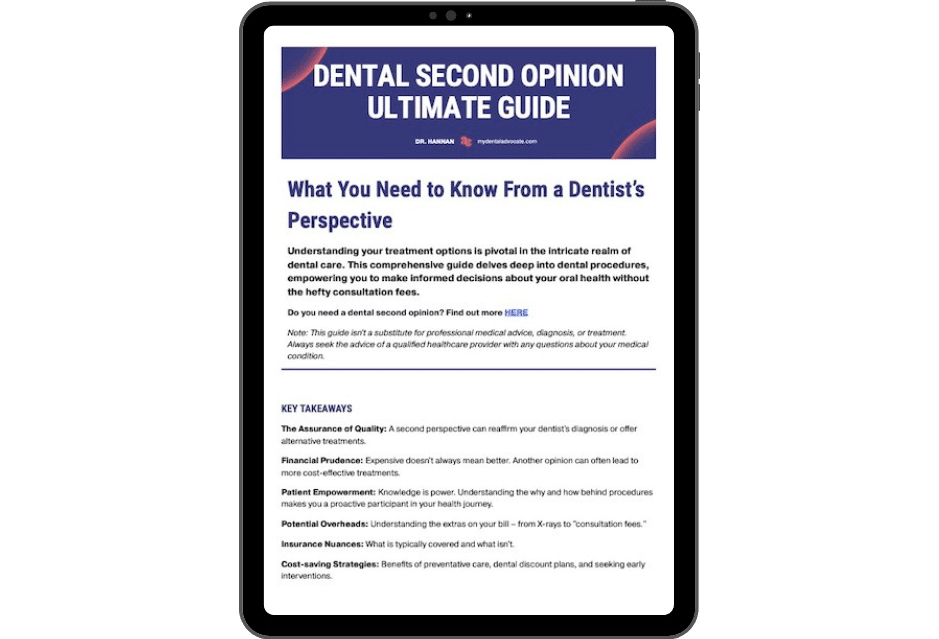What Is A Dental Crown? (Expert Advice)
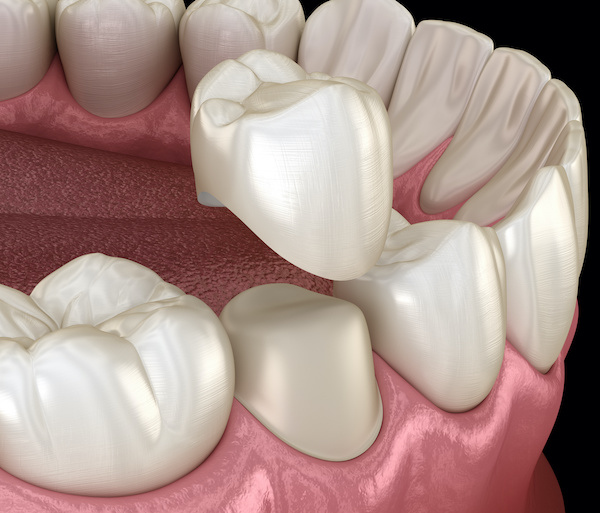
A tooth is an amazing structure and is critical in helping us eat!
If you lose part of a tooth through a cavity or tooth fracture, they don’t regrow, and untreated can affect chewing and eating enjoyment.
That’s where crowns come in.
Crowns, or caps, are tooth-like solid replacements that protect from wear, fracture, or discoloration.
There are many types of crowns, and each has a functional purpose.
Understanding Dental Crowns
Sometimes, crowns are needed if large fillings fracture, cavities form under existing crowns, or the original crown fits poorly, causing hot or cold sensitivity.
If the cavitation is too large, there may not be enough tooth remaining to support a subsequent filling.
After root canals, crowns are predominantly required to protect the weak and brittle remaining tooth structure. Because the nerve tissue provides nutrients to the tooth, the tooth requires reinforcement for longevity and durability after the nerve is removed.
Crowns are also fastened to implants to restore function and prevent adjacent teeth from drifting into the space. Lastly, crowns can also be used to mask imperfections or discolorations for esthetic purposes.
Recommended Reading: Sports Mouthguard: Protect Your Teeth, Braces & LipsWhat Happens During Crown Treatment?
Before committing to treatment, understand why you need a crown.
Did the tooth need a root canal? Does the tooth have a cavity that’s too large for a filling? Did your filling fracture? Also, discuss with your clinician treatment alternatives, such as a bridge if an adjacent tooth is missing, or extraction is more cost-effective if you are financially limited.
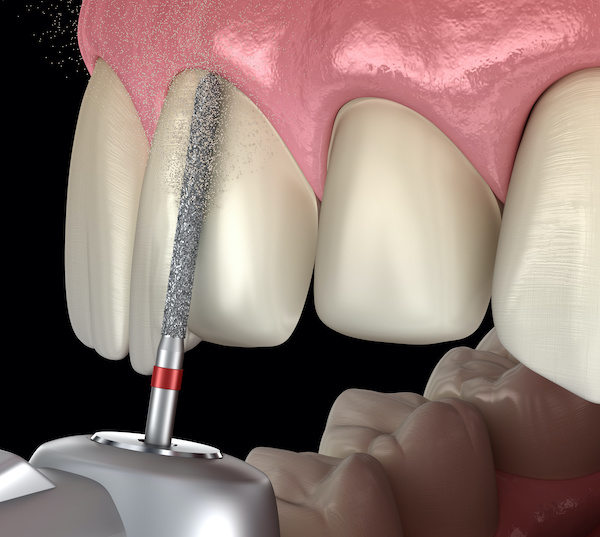
After administering the anesthetic, the clinician will verify that you’re adequately numb. Due to the dense cortical bone, it takes longer for the lower teeth to numb than the porous maxillary jaw.
If you have issues keeping your jaw open during procedures, ask the dental assistant for a bite block to rest your jaw open.
The clinician will first remove minimal tooth structure from all surfaces so that the crown fits snugly and will not interfere with your bite or adjacent teeth upon delivery.
The amount of tooth structure that’s removed depends on the type of crown being placed.
For example, porcelain fused to metal (PFM) and ceramic crowns requires more tooth structure removal than zirconia or gold crowns.
After removing the cavity or existing filling, the dentist will place a build-up to replace the missing tooth structure.
After the tooth is prepared, an impression will be taken conventionally (gooey material) or digitally. The dentist can accurately take a digital scan if a ceramic or zirconia crown is planned, followed by design, fabrication, and delivery.
If the digital scan is unsatisfactory, the clinician can quickly re-scan the tooth until it’s satisfactory.
Digital, same-day crowns are efficient, cost-effective, and no temporary crown is needed.
A temporary crown will be fabricated after the impression is inspected and approved if a conventional impression is required. Avoid crunchy and sticky foods until your final crown is delivered. Crown fabrication will take 1-4 weeks, depending on the laboratory and desired crown material.
Recommended Reading:
- CEREC Crowns | The Ultimate Guide (Content Hub)
- What Are CEREC Crowns? (Advantages & Disadvantages)
- Are CEREC Crowns Better Than Traditional Crowns? (Dentist’s Perspective)
- How Much Are CEREC Crown? (Pros, Cons & Treatment Cost)
- Same-Day CEREC Crown Process (Step-By-Step Guide)
- How Do CEREC Crowns Stay On? (Top 8 Reasons Crowns Fall Off)
- Help! My CEREC Crown Fell Out (BEST Recement Guide)
- When Are CEREC Crowns NOT Recommended? (Top 6 Reasons)
What Crown Material Is Best?
Crown materials have evolved over the years. Gold and PFM crowns have been preferred for decades because of their strength and predictability. However, ceramic and zirconia crowns have become popular because of their strength and predictability.
Let’s compare the four most common types of crowns.
Gold Pros
Gold Cons
PFM Pros
PFM Cons
Ceramic Pros
Ceramic Cons
Zirconia Pros
Zirconia Cons
Key Considerations
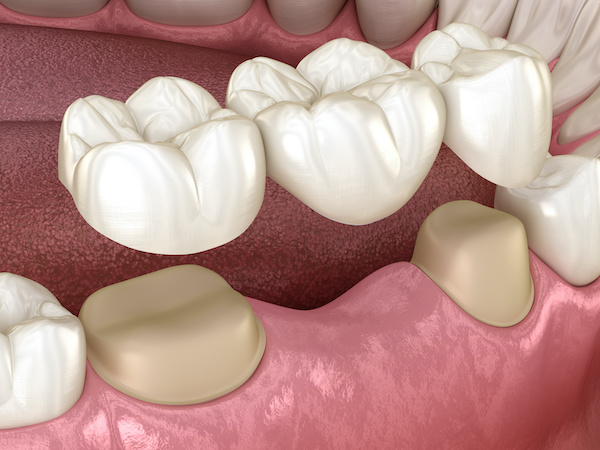
Ceramic crowns are favorable because of their strength, aesthetics, and same-day delivery capability.
Many clinicians now have a scanning machine that precisely scans the tooth after drilling is completed.
Chairside scanning allows the clinician to digitally send the images to the lab, fabricate the crown in the office, and deliver it within 2-3 hours.
The clinician completely controls each step and can make modifications on the fly if an error arises.
Ceramic crowns are prone to fracture, though. Crown fractures happen if the fabricated crown is not thick enough in heavy load areas, often seen in the back of the mouth, particularly the molars.
This happens because of their lower height, high degree of bite force, and limited thickness crowns that can be applied there. In these cases, a zirconia crown would be better suited.
Zirconia is the strongest type of crown material and can be digitally scanned.
Gold is also a favorable option; however, a conventional impression is required, which may be uncomfortable for many patients.
Related: Best MDA Recommended ProductsMy Experience & Expertise
Crowns are essential to repair and protect teeth.
Unfortunately, they can be expensive, and understanding the different material options can make your head spin.
Have you recently been diagnosed with needing a crown? Were you hoping a filling could be completed instead?
My Dental Advocate’s team of board-certified dentists can provide a second opinion on your planned treatment. We look forward to bringing you peace of mind by verifying your treatment plan, suggesting an alternative, or just answering your questions.
Need a second opinion? We can help! Learn more. Knowledge is power when cultivating healthy dental habits. The more informed you are, the better positioned you’ll be to prevent avoidable and potentially costly dental procedures for you and your family. Watch for future blog posts, where we’ll continue sharing important information, product reviews and practical advice!

About the Author
Dr. Matthew Hannan, also known as “Dr. Advocate,” is a board-certified dentist on a mission to provide accurate dental patient education. He attended Baylor University before completing dental school at UT Health San Antonio School of Dentistry. He now lives in Arizona with his beautiful wife and 4 kids. Dr. Hannan believes everyone should access easy-to-read dental resources with relevant, up-to-date dental research and insight to improve their oral health.

Connect with Dr. Hannan!
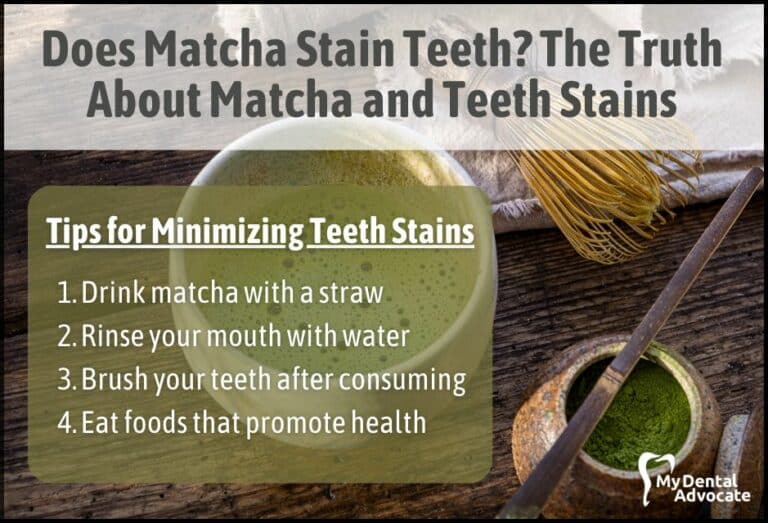
Does Matcha Stain Teeth? The Truth About Matcha and Teeth Stains
Matcha is a trendy superfood that’s become a staple in many people’s diets. But for some, the thought of drinking matcha may be met with concern about teeth staining. In this article, we’ll uncover the truth about matcha and teeth stains…
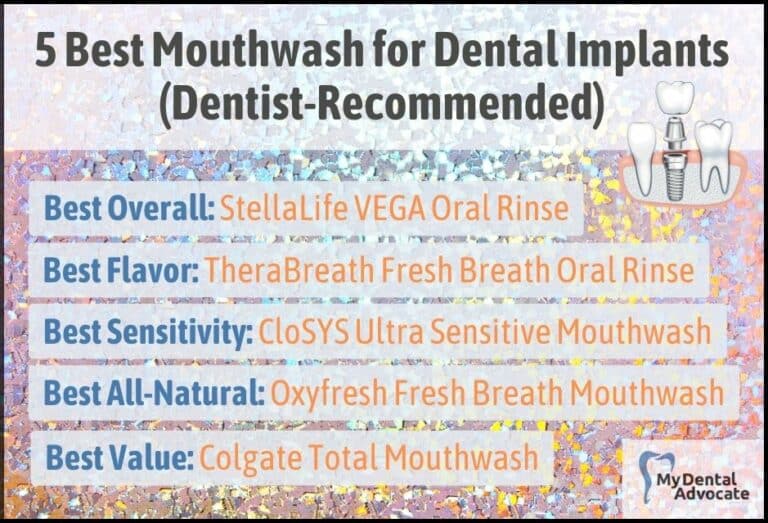
5 Best Mouthwash for Dental Implants 2024 (Dentist Recommended)
Maintaining optimal oral health is more crucial than ever for those who have decided to invest in dental implants. Dental implants, representing a significant advancement in dental technology, restore functionality and aesthetics and require particular care to ensure longevity.
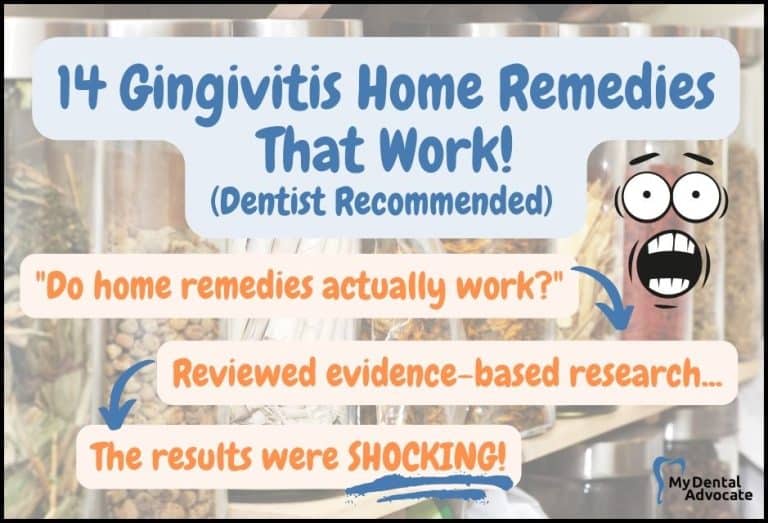
14 Gingivitis Home Remedies That Work! (Dentist Recommended)
Gingivitis requires professional treatment by a dentist or dental hygienist to remove harmful bacteria below the gums. However, there are promising home remedies that will alleviate signs and symptoms of gingivitis…
Gain Clarity with Our FREE Second Opinion Guide
Receive clear, expert second opinions online within 48 hours. Start today!
Product Reviews
Our 250+ dental product reviews (and counting), curated by an experienced dentist, are the most comprehensive online.
Toothbrush Genie
State-of-the-art chatbot designed to help you discover your perfect toothbrush in just a few simple steps!
Cavity Risk Assessment
Cutting-edge digital tool designed to evaluate your individual cavity risk based on your responses to a series of questions.
Gum Disease Assessment
Discover your gum disease risk with our quick and engaging 6-question assessment!
